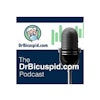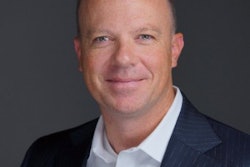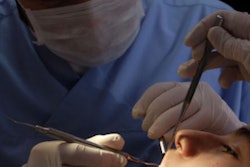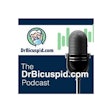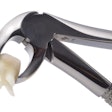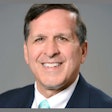
Trust appears to be on the decline in today's world. COVID-19 variants and social media misinformation abound in a confusing world of uncertainty about the truth and who is being truthful. All this uncertainty can show up in our practices with patients who perceive us as being untrustworthy.
A dentist friend of mine relayed a story regarding a patient who had lost trust in her and had left the practice. The patient was older, healthy, and valued keeping her teeth. She had been a patient for three years.
During one appointment, the patient presented with a fractured cusp on an upper right molar. She told the hygienist and the dentist about it during a routine maintenance appointment, and the team entered a treatment plan for a CAD/CAM crown. At the desk, the patient paid for the hygiene visit, scheduled the next hygiene visit, and left without making an appointment for the crown.
 Dr. James V. Anderson.
Dr. James V. Anderson.Four months went by and the patient returned for a maintenance visit. Her molar was the same and hadn't gotten any worse. During the visit, the same hygienist took her back, sat her down, and asked her if she had any concerns since the last visit. She said, "Yes, I have a broken tooth on the upper right. I want to know if it is worse, and should I get the crown?"
The hygienist said he would look at it and mentioned that she was not due for an examination with that day's appointment. He didn't look at the tooth and dismissed her. She remembered later that she didn't get her question answered.
Based on her experience, the patient's instincts told her to no longer trust the dentist or the hygienist. Her thoughts caused her to question her experience:
- "Do I need a crown on this tooth, or will a filling suffice?"
- "If the crown needs to be done, why don't they help me get an appointment?"
- "Will I get a quality crown from this office?"
- "Do they think that because I am old I don't want to spend money on my teeth?
Trust was replaced by suspicion and doubt.
In "The Speed of Trust," author Stephen Covey demonstrates how trust and the speed at which it is established with clients, employees, and stakeholders is the single most critical component of a successful leader and organization. Lack of trust affects everything in the organization, and gaining trust makes everything better.
Trust in the dental profession is the patient's confidence in the dentist and the team. If the team lacks trust in each other, it will be disguised as poor communication, lethargy, and lack of engagement. All three were evident with this patient!
Gaining trust back at your practice
Trust enhances communication and, in doing so, speeds efficiency and lowers costs. "The Speed of Trust" delves into the importance of trust and how it can improve all aspects of our lives, from personal relationships to productivity in the office. Throughout the book, Covey offers tips on precisely what to do to increase trust in our lives.
When people lose trust or faith in their healthcare providers, they often turn to "Dr. Google" to validate their thoughts or suspicions. The internet has become the primary source of information for many people. Google searches have increased every year, and by 2019, the number of Google searches reached 63,000 per second.
Furthermore, the COVID-19 pandemic revealed dramatic divisions in trusting public health recommendations made by scientists and healthcare professionals. As healthcare professionals, we need to keep trust in our profession alive and thriving. We don't want to be replaced by Google and other search engines.
Trust is necessary for our credibility. An atmosphere of trust can spur people to collaborate productively so things get done faster and lower costs. When trust is absent and suspicion and uncertainty abound, business slows down and costs rise. The absence of trust is an expense, while the presence of trust is like revenue to a business.
If you're interested in learning more about trust I recommend reading "The Speed of Trust." But if you're short on time, here are three great takeaways:
- Trust increases speed with improved communication and overall lowers the costs of doing business.
- Before you trust others, you must first trust yourself. Trust is the confidence you have in your ability to work with your people for a positive outcome.
- Societal trust is critical for businesses to cultivate by contributing their expertise.
Think about my friend's situation with her patient. The patient lost confidence in the practice to be truthful with her. There was a lack of listening to the patient and a lack of collaboration on the part of the team. The result is a lost patient, future revenue, and referrals.
Distrust generates many problems for a practice and must not be dismissed as one patient with a dispute. Sit down with your team and discuss areas of the practice that need attention to building team and patient trust. Listen and learn and make the necessary changes.
Dr. James V. Anderson is a practicing dentist in Syracuse, UT, and is the CEO and founder of eAssist Dental Solutions. He can be reached via email.
The comments and observations expressed herein do not necessarily reflect the opinions of DrBicuspid.com, nor should they be construed as an endorsement or admonishment of any particular idea, vendor, or organization.



